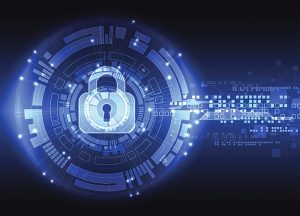Chip memory size and computation time are key
 Security experts at Infineon’s Munich headquarters and the Center of Excellence for contactless technologies in Graz, Austria, made a breakthrough in this field. They implemented a post-quantum key exchange scheme on a commercially available contactless smart card chip. Key exchange schemes are used to establish an encrypted channel between two parties. The deployed algorithm is a variant of “New Hope”, a quantum-resistant cryptosystem also explored successfully by Google on a development version of the Chrome browser.
Security experts at Infineon’s Munich headquarters and the Center of Excellence for contactless technologies in Graz, Austria, made a breakthrough in this field. They implemented a post-quantum key exchange scheme on a commercially available contactless smart card chip. Key exchange schemes are used to establish an encrypted channel between two parties. The deployed algorithm is a variant of “New Hope”, a quantum-resistant cryptosystem also explored successfully by Google on a development version of the Chrome browser.
“The phantom of the quantum computer is keeping academia and the IT industry on high alert,” said Thomas Pöppelmann from Infineon’s Chip Card & Security Division, who has been co-developing the New Hope algorithm. “At Infineon, we are proud to be the first to transfer PQC onto contactless smart cards. Our challenges comprised the small chip size and limited memory capacity to store and execute such a complex algorithm as well as the transaction speed.” Thomas Pöppelmann and his co-researchers received the prestigious Facebook Internet Defense Prize 2016 for the development of New Hope.
In a world of quantum computers, PQC should provide a level of security that is comparable with what RSA and ECC provide today in the classical computing world. However, to withstand quantum calculation power, key lengths need to be longer than the usual 2048 bits of RSA or the 256 bits of ECC. Nevertheless, the researchers at Infineon were able to implement New Hope on a commercially available security chip without requiring additional memory space and hence a larger chip size.
Standardization bodies are expected to agree on one or multiple PQC algorithms within the next few years before governments and industries mandate the migration. Infineon is actively participating in the development and standardization process in order to enable a smooth transition and to address security challenges that may arise in the advent of quantum computers.
About quantum computers
A quantum computer uses “qubits” that can exist in any superposition rather than bits (0 or 1) in a conventional device. Consequently, certain calculations can be performed simultaneously and far faster than ever before, solving problems that would require unattainable amounts of conventional computing power today. With operations that are thousands of times faster, quantum computers offer new possibilities, for instance, for searching large databases, for chemical or physical simulations, and in material design, etc. However, this operating power may also allow the decoding of currently used encryption algorithms that are practically impossible to decode with technologies available today.
For more information, visit: www.infineon.com



